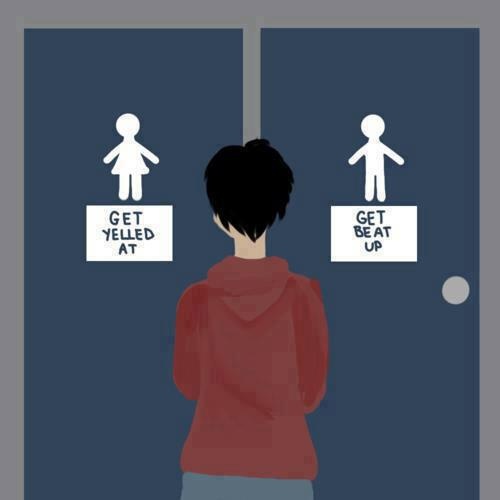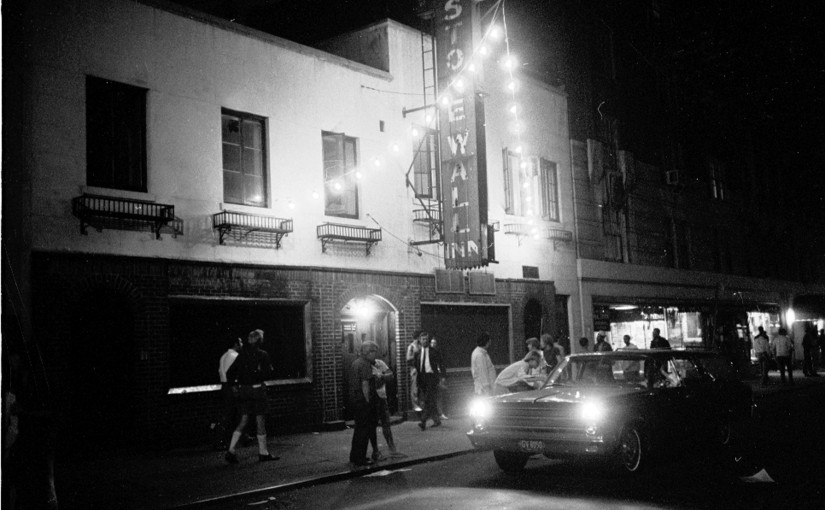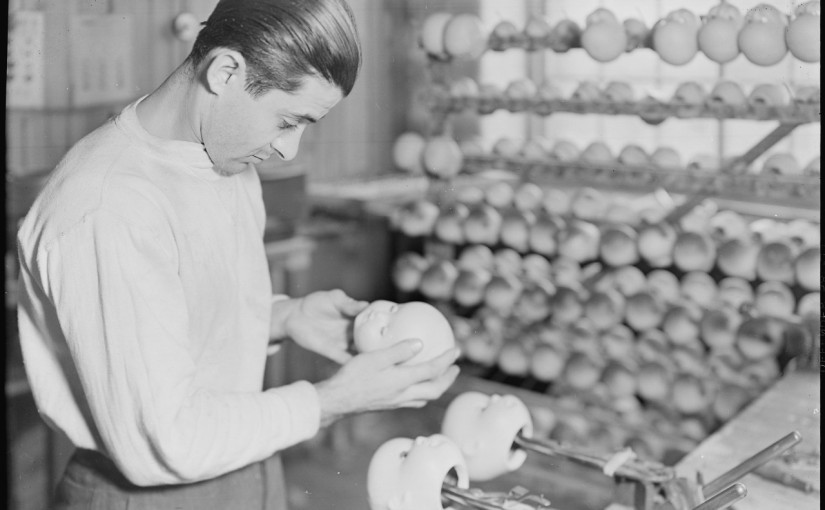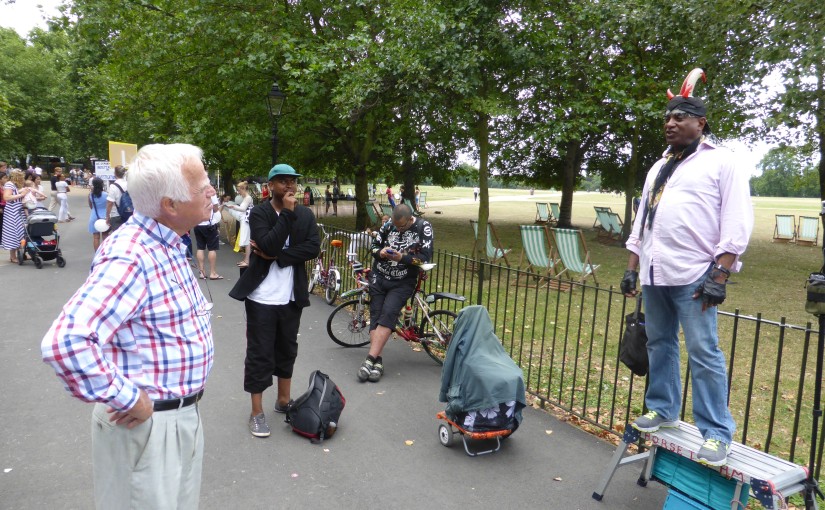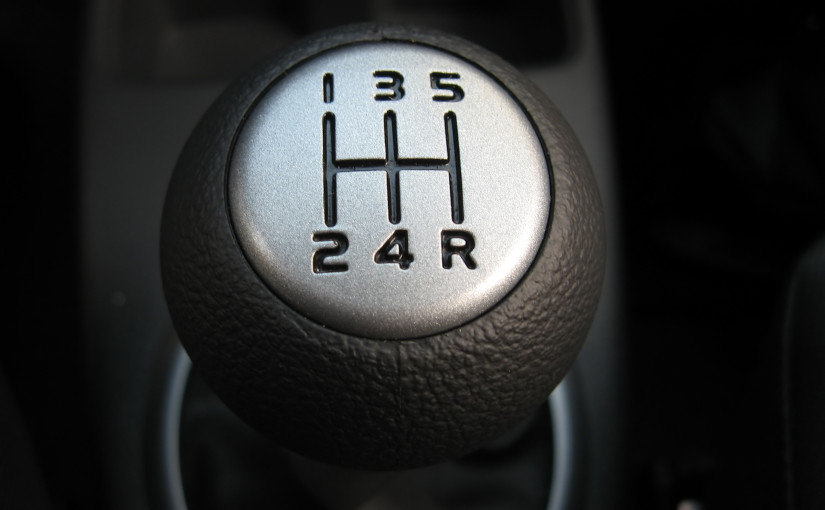Merely 100 years after the Norman conquest of England in 1066, the new Norman/English nation, led by King Henry II, extended its reach into Ireland, seizing a large swath of land starting at Dublin and extending northward up the Irish east coast. For centuries they tried (and ultimately failed) to preserve this area as a distinctly English enclave, separated from local blood, customs and language. They marked the contentious boundary between their lands and those of the native Irish with a series of stakes demarcating the territory that they claimed and were prepared to defend. Collectively, the stakes lent their name (Latin: palus) to the English lands within, although the stakes themselves gradually gave way to a series of defensive ditches and hedges which could not even restrain livestock. Nevertheless, psychologically the English separated themselves from the great unwashed–the uncouth, uncivilized heathens living “beyond the pale”.
This quaint historical echo of English condescension resurfaced last month when New Jersey governor and playground bully Chris Christie referred to a bill changing the requirement for gender-corrected birth certificates for transgender New Jerseyans as once again, beyond the pale. Existing law allows such a change only for those who have had genital surgery; the new proposal, which Christie has now twice vetoed in consecutive years, amends this to those who can document “appropriate medical therapy.” This year as last, Christie cited the possibility of fraud as justification for rejecting the bill.
While I don’t believe for a minute that he actually believes such a bill would result in significant identity fraud, I am hardly surprised that, given his aspirations for the Republican Presidential nomination, Christie is not an early adopter of transgender rights. What caught my attention was not so much that he is unconvinced such a measure is right for New Jersey. He could have said that such an idea was “beyond the Hudson” without arousing much more than a confused shrug from those who slept through their high school geography class.1 Christie aroused my ire and news outlet scrutiny not because of his predictable conservative stance, but rather because he seems to have laughed derisively at the bill in public comment, misrepresented it as requiring nothing more than a capricious feeling on the part of the applicant, and casting it as somehow ridiculous, employing the colorful Anglo-Irish metaphor which merely two paragraphs ago inspired our rapt attention.
The extent to which Christie’s meager 1% support in the polls owes to his stance on transgender rights is dubious. However, it is increasingly clear that in 2016, Presidential contenders will, at the very least, need to have a stance on such rights. To my upraised finger,2 this represents a huge shift in the political winds.
I digress. Thanks to my own nativity in the State of Confusion3, I already have a reissued birth certificate. It felt important at the time for me to obtain it, but it is my driver’s license which daily proves my name/gender, and my passport which put an end to the extraordinary rate of rescanning, patting down, and in one case barely disguised groping I used to experience at TSA security. One year and a dozen flights later, they have not laid a hand on me since. Documents really do matter. Nevertheless, the signature battle for transgender rights will not occur at a government desk, but rather in your local restroom.
Transgender bathroom bills are all the rage this year. Culture warriors increasingly rally troops bruised by losses on gay marriage by pivoting to a front where they still feel like they can win–the legitimization of transgender discrimination. Whatever. Christie and other state/local officials may obstruct on birth certificates, but practically speaking, one usually isn’t required until something is needed to staple to the equivalent death document. I expect to have to pee long before then. Transphobic activists are working overtime to put an end to such excretory nonsense.
Until I got to know more transgender people I wondered if I was becoming a bit lavatory-obsessed. Writing my Bathroom Song was the first sign. Then came the (unrecorded as far as you know) Garth Brooks spoof,4 riffing on the same theme. Was I stuck in a rut?
Well, it turns out that I have absolutely nothing on the fanaticism of transphobic activists and legislators. They propose laws which explicitly discriminate, well…indiscriminately against both FTM’s and MTF’s, although honestly they don’t seem to have heard of the former. MTF’s themselves are cast not as women in any sense, but posers and pretenders faking an identity crisis to justify legalized voyeurism. “The clothes make the man?” Pshaw…it’s all about the naughty bits, and they are coming after your daughter.
The central assumption of anti-trans bathroom legislation is that a short and slippery slope exists between transgender identity and sexual predation. Further, the only way to prevent such acts of sexual violence is to ensure that people use the bathroom corresponding to those parts of their bodies which are unquestionably the least likely to be seen by others in a public restroom. Or, the hypothetical discomfort of born men/women with trans men/women in the Gents/Ladies5 is sufficient cause to compel transfolk to use facilities where they are actually uncomfortable and genuinely at risk for assault.
I have been called selfish for using the Women’s room, but honestly never by anyone inside of it. Maybe no woman has ever had the heart to tell me. However, I suspect that the truth of the matter is that once I reached the point when I was thought it was more appropriate to use the women’s room, most reasonable people agreed with me. Think about it. Is this or this really more comfortable for all parties concerned?
I’ll wager that beyond some threshold of minimum facility cleanliness before dropping your drawers/lifting your shift you don’t have a Bathroom Strategy, let alone one that rates capital letters. I’ll let you decide if it reveals a potential threat to the common good or if it’s merely neurotic as hell:
It starts with intelligence gathering. Are the rooms multistall or locking singles? Are there just the two options, or is there a door number three? How philosophically compromising, on a scale from 9 to 10, does door number three feel today? Can I tell which side the stalls will be on by the distance between the men’s and women’s doors? I look for temporary lulls in traffic like a golfer trying to time a shot between invisible gusts of wind. Wait, it’s intermission…perhaps I can dart in quickly after they flick the lights to signal the rest of the patrons back to their seats.
Time to move. Eyes downcast, or at least distant and unfocused, I enter the bathroom hugging the wall. One stall will be larger–this time the handicapped designation doesn’t seem to goad me. Being 6’3″ in a room full of ridiculously low toilets is handicap enough. Sitting down on one of those little toadstools captures 90% of the essence of falling ingloriously on one’s ass. I might never rise again, and they’ll find me stuck here during third shift cleaning. I bee line for the taller seat if available, but if not, then closest port in a storm.
Dear God, no…there’s a line. Please, please, please don’t talk to me. Maybe I can pretend I’m 20 and just stare at my phone. How convincingly can I say, No habla ingles? It’s not too late to turn back. Two and a half hours…surely I can hold it for two and a half hours.
No, I can’t. Hopefully there’s somewhere else to stop on the way home–a gas station preferably. Good ol’ single rooms. Fair odds in a fast food joint too. Not the roadside, though. There is no way in hell I’m going to be written up in the local paper as the transvestite[sic] cited for public urination. I go through life bouncing from one embarrassment to another, but some humiliations are simply beyond the pale.
